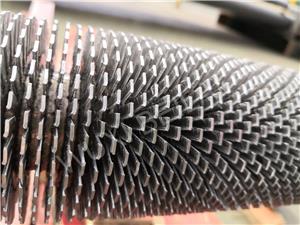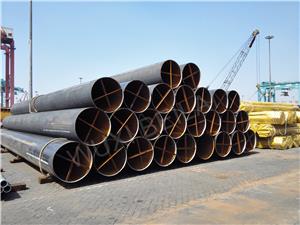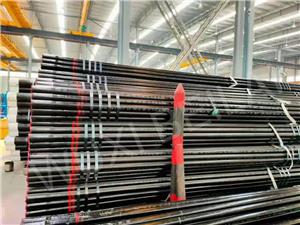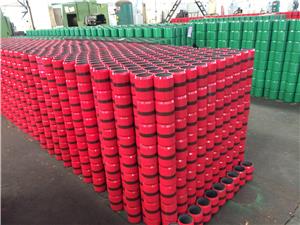How to prevent and solve the common failure of boiler tube
In industrial production, boiler tube as the core equipment, its stable operation is crucial to the efficiency and safety of the whole production line. However, long-term exposure to the harsh environment of high temperature, high pressure and chemical erosion has resulted in frequent boiler tube failures, which has become an urgent problem in the field of industrial maintenance. Boiler tube manufacturer Bei Lai, based on existing research, deeply analyses the common types of boiler tube failures, causes, prevention strategies and detailed solutions, aiming to provide enterprises with all-round, in-depth guidance and reference.
The corrosion problem - the invisible threat of the boiler tube wall
Boiler tube at high temperatures and complex chemical environment, corrosion has become the primary challenge. Corrosion not only weakens the thickness of the tube wall, reducing the pressure capacity, but also may cause leakage and other serious accidents. In order to effectively resist corrosion, enterprises should take the following measures:
1. Regular Inspection and Maintenance: Utilizing high-precision inspection equipment, including endoscopy and ultrasonic thickness gauges, to conduct a comprehensive and meticulous regular inspection of the internal and external walls of boiler tubes. This ensures timely detection and assessment of corrosion conditions.
2. Chemical Protection: Employing high-quality chemical protection equipment, along with selecting materials that exhibit exceptional corrosion resistance, such as stainless steel and nickel-based alloys. These materials are used for coating or lining boiler tubes, forming a robust protective barrier that effectively isolates the corrosive medium.
3. Sediment Cleaning: Regularly removing deposits from boiler tubes to prevent them from acting as a catalyst for corrosion. Employing efficient methods such as high-pressure water jet cleaning and chemical cleaning ensures that the tube walls remain in pristine condition.
The wear problem - the double challenge of fluid and particulate matter
The high-speed flow of fluid and the particulate matter carried inside the boiler tube cause continuous impact on the tube wall, which triggers the wear problem. Wear not only reduces the thickness of boiler tubes, but can also pose safety hazards such as leakage. In order to cope with the challenge of wear, companies can adopt the following strategies:
1. Optimize Design: Enhance the structural design of boiler tubes by adopting a streamlined approach to minimize fluid resistance and decelerate wear rates.
2. Durability Materials: Select materials renowned for their exceptional wear resistance, such as high-chromium cast iron and ceramic linings, to fortify the resilience of boiler tube walls.
3. Scheduled Inspection & Replacement: Establish a rigorous inspection schedule to regularly assess boiler tube wear and tear. Promptly replace damaged components as needed to maintain the safe and efficient operation of the boiler system.
The clogging problem - the problem of sediment and scale
Sediment and scale inside the boiler tube is the main cause of clogging. Clogging not only affects the heat transfer efficiency of the boiler, but also may cause overheating, tube burst and other serious consequences. In order to prevent clogging problems, enterprises can take the following measures:
1. Chemical Cleaning: Utilizing specialized chemical cleaning agents to thoroughly clean boiler tubes, effectively dissolving and eliminating deposits and scale. Simultaneously, emphasize the selection of non-corrosive cleaning agents for boiler tubes to guarantee both cleaning efficacy and safety.
2. Physical Cleaning: Employing high-pressure water jets, mechanical scraping, and other physical techniques to comprehensively remove stubborn deposits and scale from boiler tubes.
3. Water Quality Management: Enhance the management of boiler water quality by rigorously controlling water quality indicators to minimize the formation of scale and sediments.
The crack problem - the double test of temperature and pressure
Boiler tube in the temperature changes and pressure fluctuations under the action of cracks easily. Once formed, cracks will expand rapidly and lead to boiler tube failure. In order to prevent the crack problem, enterprises can take the following measures:
1. Non-destructive Testing: Employing ultrasonic testing, ray detection, and other non-destructive methods for routine inspection of boiler tubes, enabling timely detection and assessment of cracks.
2. Temperature and Pressure Control: Optimize boiler operating parameters by exercising reasonable control over temperature and pressure fluctuations, thereby mitigating the causes of cracks.
3. Crack Repair: Upon discovering cracks, promptly undertake welding and other repair measures to ensure the safe operation of the boiler tube.
The problem of welding defects - the weak link of the boiler tube
Welding parts is one of the weak links of the boiler tube is prone to welding defects such as cracks, slag and so on. Welding defects not only reduce the strength and sealing of the boiler tube may also become the starting point for crack expansion. In order to reduce the occurrence of welding defects, enterprises can take the following measures:
1. Skilled Welders: The selection of welders possessing extensive experience and exceptional skills, ensuring the highest welding quality for all welding operations.
2. Premium Welding Materials: The utilization of high-quality welding materials that adhere to the standard requirements for welding operations, enhancing the performance of welded joints.
3. Rigorous Post-Weld Testing: Comprehensive post-weld testing of welded components, encompassing both visual inspection and non-destructive testing, to guarantee that welding quality meets all specified requirements.
Boiler tube manufacturer Bei Lai reminds: enterprises should effectively implement the above prevention and solution measures to protect the stability and service life of the boiler tube, to ensure the smooth progress of industrial production. In addition, enterprises should also strengthen staff training, and enhance the management level and maintenance capacity of boiler tube, to lay a solid foundation for the sustainable development of enterprises.




